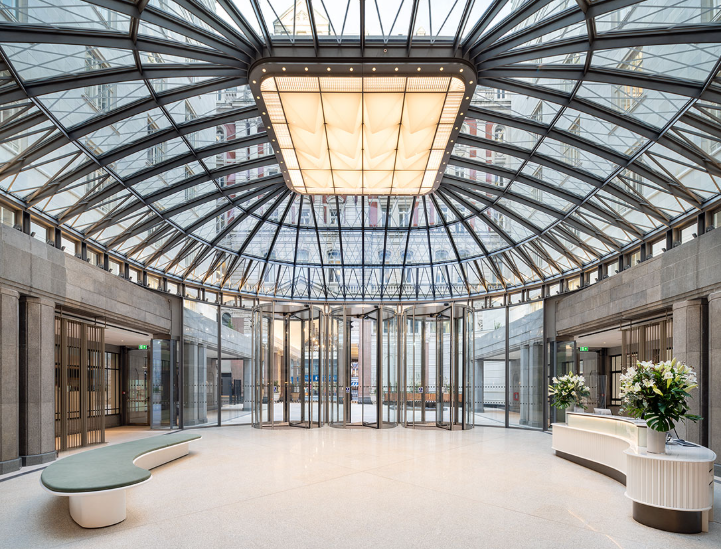Bin Rentals Near Me: Top Tips for Finding Reliable and Affordable Services
1. Dumpster
Okay, let’s talk dumpsters. When you’re knee-deep in a home renovation or clearing out years of accumulated junk, a dumpster can be a lifesaver. Finding a good bin rental near me is key, but it’s not just about picking the first company you see. You gotta do a little digging (pun intended!).
First off, think about size. Too small, and you’re making multiple trips. Too big, and you’re paying for unused space. Most companies have guides to help you estimate, but it’s always better to overestimate slightly. I once rented a dumpster that was just too small, and ended up with a pile of stuff sitting next to it for a week. Not fun.
Then there’s the question of what you can actually put in the dumpster. Some companies have strict rules about hazardous materials, electronics, or even certain types of construction debris. Make sure you’re clear on the rules before you start tossing stuff in. It’s also worth asking about weight limits. Overloading a dumpster can lead to extra fees, and nobody wants that.
Finally, don’t forget to check for permits. Depending on where you live, you might need a permit to place a dumpster on the street or even in your driveway. Your rental company should be able to advise you on this, but it’s your responsibility to make sure you’re in compliance.
Renting a dumpster is more than just getting a big metal box. It’s about planning, understanding the rules, and making sure you’re getting the right size for your needs. A little bit of research can save you a lot of headaches (and money) in the long run.
Here’s a quick checklist to keep in mind:
- Estimate the size you need (and maybe add a little extra).
- Check what materials are allowed.
- Ask about weight limits.
- Find out if you need a permit.
- Compare prices from different companies.
And hey, while you’re at it, maybe learn how to tie a trash bag properly. You’d be surprised how much extra space you can create just by tying it right!
2. Roll-Off Container
Roll-off containers are those big, open-top bins you often see at construction sites or home renovation projects. They’re called “roll-off” because they literally roll off the back of a specialized truck. These are great for handling large volumes of waste, like demolition debris, roofing materials, or even just a massive cleanout of your house. Finding a reliable bin rental near me for a roll-off container can make a huge difference in how smoothly your project goes.
Roll-off containers come in various sizes, usually measured in cubic yards. Common sizes include 10-yard, 20-yard, 30-yard, and 40-yard containers. The size you need depends on the amount of waste you expect to generate. A small bathroom remodel might only need a 10-yard container, while a whole-house renovation could require a 30 or 40-yard one. It’s always better to overestimate slightly than to underestimate and have to rent a second container.
When you’re looking for a roll-off container rental, consider these factors:
- Size: Accurately estimate the volume of waste.
- Rental Period: How long will you need the container?
- Price: Get quotes from multiple companies to compare.
- Permits: Check if your city or county requires a permit to place a roll-off container on the street or your property.
- Restrictions: Be aware of any restrictions on what you can put in the container (e.g., no hazardous materials).
One thing I learned the hard way is to ask about weight limits. Some companies charge extra if you exceed a certain weight, even if the container isn’t full. Heavy materials like concrete or dirt can add up quickly, so it’s important to be aware of these potential extra costs. Also, don’t forget to ask about how to tie a trash bag properly to maximize space and prevent spills!
3. Waste Bin
When you hear “waste bin,” you might think of the small can under your desk. But in the context of a “bin rental near me” search, it usually refers to something bigger. Think of it as a general-purpose container for getting rid of all sorts of non-hazardous junk. It’s a step up from your regular trash can and a good option for smaller projects.
Waste bins are super useful for decluttering your house, small renovation projects, or even yard work. They come in different sizes, so you can pick one that fits your needs without paying for extra space you don’t need. Plus, they’re often easier to load than a roll-off dumpster because they’re lower to the ground. Just remember, you can’t throw everything in there – things like paint, chemicals, and electronics usually need special disposal.
Finding the right size is key. Too small, and you’ll be making extra trips. Too big, and you’re paying for unused space. Measure your junk pile before you call for a quote. It’ll save you time and money in the long run.
Here’s a quick rundown of what you might use a waste bin for:
- Getting rid of old furniture
- Clearing out your garage or attic
- Handling debris from a small home project
- Yard waste like branches and leaves
And speaking of waste, don’t forget the basics, like knowing how to tie a trash bag properly. It sounds simple, but a good knot can prevent spills and keep things tidy!
4. Debris Box
Okay, so a debris box is basically another name for a dumpster, especially when you’re dealing with construction or renovation stuff. Think broken concrete, old drywall, busted tiles – that kind of heavy, messy waste. Finding a good “bin rental near me” for debris usually means looking for companies that specifically handle construction waste. They often have different sizes and weight limits compared to regular trash dumpsters.
When you’re getting a debris box, make sure you’re super clear about what you’re planning to throw in it. Some companies have strict rules about what’s allowed, and you don’t want to get hit with extra fees later on. Also, think about where they’re going to drop it off – you’ll need enough space, and the ground needs to be able to handle the weight.
Here’s a few things to keep in mind:
- Size Matters: Estimate how much debris you’ll have. It’s better to go a little bigger than to underestimate.
- Weight Limits: Debris can get heavy fast. Know the weight limit to avoid overage charges.
- Placement: Make sure the drop-off location is accessible and can support the weight of the filled box.
And hey, while you’re at it, don’t forget the simple things, like knowing how to tie a trash bag properly when you’re cleaning up smaller stuff around the site. It’s the little things that make a difference!
5. Junk Receptacle
Okay, so a “junk receptacle” is basically just a fancy way of saying “bin.” But hey, sometimes you need to sound a little more official, right? When you’re searching for a “bin rental near me,” you might see this term pop up, especially if you’re dealing with a company that caters to construction sites or large-scale cleanouts. It’s all the same thing, though – a container to toss your unwanted stuff into.
Think of it this way: you wouldn’t call your kitchen trash can a “junk receptacle” (unless you’re feeling particularly verbose that day). But if you’re tearing down a shed in your backyard and need a big container to throw all the old wood, shingles, and rusty nails, then yeah, a junk receptacle is exactly what you need. It’s about scale and the type of waste.
- Size matters: Make sure you get the right size. Too small, and you’ll be making multiple trips. Too big, and you’re paying for unused space.
- Consider the material: Are you tossing heavy stuff like concrete? You’ll need a sturdier receptacle.
- Check for hidden fees: Some companies sneak in extra charges for things like exceeding weight limits or keeping the bin longer than agreed. Always read the fine print.
Renting a junk receptacle is pretty straightforward. Call around, get some quotes, and make sure they can deliver and pick up when you need them to. Don’t be afraid to haggle a little on the price, especially if you’re a repeat customer.
And hey, while you’re at it, don’t forget the basics, like knowing how to tie a trash bag properly so you don’t end up with a mess when you’re hauling it out to the receptacle. Little things make a difference!
6. Trash Can
Okay, so a trash can might seem a little basic compared to a full-on dumpster, but hear me out. Sometimes, you don’t need a massive bin rental near me. A simple trash can, or maybe a few, can be perfect for smaller projects or cleanups. Think about it: spring cleaning, decluttering a room, or even just managing daily household waste. It’s all about choosing the right tool for the job.
I remember this one time I was helping my neighbor clear out his garage. He had all these old boxes and junk piled up, but it wasn’t enough to justify renting a whole dumpster. We ended up just using a bunch of heavy-duty trash cans and it worked out great. Saved him a ton of money, too.
- Perfect for small-scale cleanups.
- Cost-effective for minimal waste.
- Easy to manage and transport.
Using trash cans effectively involves more than just tossing stuff in. Think about sorting your waste – recyclables, compost, and general trash. This not only helps the environment but can also reduce the amount of waste you actually need to dispose of. Plus, knowing how to tie a trash bag properly can prevent spills and messes. It’s the little things that make a big difference.
And speaking of messes, let’s talk about “how to tie a trash bag”. It sounds simple, but a poorly tied bag can lead to a real disaster. The key is to create a secure knot that won’t come undone when you lift the bag. There are tons of different methods, but I usually just go for the classic overhand knot. Works every time!
7. Rubbish Bin
Okay, so a “rubbish bin” is basically another term for what most people call a trash can or garbage bin. When you’re looking for a “bin rental near me“, keep in mind that companies might use different words to describe the same thing. It’s all about finding the right size and type of container for your project, no matter what it’s called.
Sometimes, the term “rubbish bin” implies a smaller, more manageable size, like something you’d use for household waste. But don’t assume! Always check the dimensions and capacity before you book anything. You don’t want to end up with a bin that’s too small (or way too big) for your needs.
Here are a few things to consider when you’re thinking about rubbish bins:
- Size matters: Make sure the bin is big enough to hold all your waste, but not so big that it takes up too much space.
- Type of waste: Are you throwing away construction debris, yard waste, or just regular household trash? Some bins are better suited for certain types of materials.
- Placement: Where will the bin be located? Will it be easy to access for both you and the rental company?
It’s a good idea to ask the rental company about any restrictions on what you can put in the bin. Some materials, like hazardous waste, might not be allowed. Also, be sure to ask about weight limits to avoid any extra charges.
And hey, while we’re on the topic of trash, let’s not forget the basics, like how to tie a trash bag properly. A good knot can prevent spills and keep things tidy. It’s a small thing, but it makes a big difference!
8. Skip
Okay, so a “skip” is basically another name for a dumpster, especially if you’re talking to someone from the UK or Australia. It’s the same concept: a big, open-topped container you rent to get rid of a bunch of waste. When you’re searching for a “bin rental near me,” don’t be surprised if you see the term “skip” pop up, especially if the company has international roots or serves a diverse clientele.
Now, what makes a skip useful? Well, think about it. You’re doing a big home renovation, clearing out your garage, or maybe even landscaping your yard. All that stuff has to go somewhere, and a regular trash can just isn’t going to cut it. That’s where a skip comes in handy. It’s bigger, tougher, and designed to handle all sorts of junk.
Here’s a few things to keep in mind when you’re looking at skip rentals:
- Size matters: Skips come in different sizes, so figure out how much stuff you really need to get rid of. Overestimating is better than underestimating, trust me.
- Permits: Depending on where you live, you might need a permit to put a skip on the street. Check with your local authorities to avoid any fines.
- What you can throw away: Some companies have restrictions on what you can put in their skips. Hazardous materials, for example, are usually a no-go.
Renting a skip can save you a ton of time and effort compared to making multiple trips to the dump. It’s also way less messy than piling everything up in your driveway. Just make sure you do your research and choose a reputable company.
And hey, while you’re at it, remember to learn how to tie a trash bag properly. It’s a small thing, but it can make a big difference in keeping your skip (or any trash container) tidy and preventing spills. Nobody wants to deal with a leaky trash bag, especially when you’re already dealing with a big cleanup project.
9. Garbage Container
Okay, so a garbage container is basically another name for a bin, dumpster, or whatever you want to call it. When you’re searching for a “bin rental near me,” you’ll probably see listings for garbage containers too. It’s all the same thing, just different words people use. The main thing is figuring out what size you need and how long you’ll need it for.
Think about the project you’re doing. Are you just cleaning out your garage, or are you tearing down a wall? That’ll make a big difference in the size of the container you need. Also, consider how often the container will be emptied. Some companies offer regular pickups, while others only pick it up when you call them.
Here’s a few things to keep in mind:
- Size matters: Don’t underestimate how much stuff you have. It’s better to get a slightly bigger container than to have to rent another one.
- Placement is key: Make sure the container can be easily accessed by the truck. Also, think about where you’re putting it so it doesn’t block your driveway or annoy your neighbors.
- Know the rules: Some cities have rules about where you can place a garbage container and how long you can keep it there. Check with your local government before you rent one.
Renting a garbage container can be a lifesaver when you’re dealing with a lot of trash. It’s way better than trying to haul everything to the dump yourself. Just do your research, compare prices, and make sure you’re working with a reputable company. And don’t forget to learn how to tie a trash bag properly to avoid spills!
10. Refuse Bin
Okay, so a “refuse bin” is basically just another fancy way of saying “trash can.” But hey, sometimes you need to use the right terminology, especially when you’re talking about larger-scale waste management. When you’re searching for a bin rental near me, you might see this term pop up, so it’s good to know what it means. It’s all about context, right? You wouldn’t call a dumpster a “trash can,” and you probably wouldn’t call your kitchen bin a “refuse container.”
Refuse bins come in all shapes and sizes, from small ones for household use to massive ones for construction sites. The type you need will depend entirely on the amount and type of waste you’re dealing with. Think about it: are you just cleaning out your garage, or are you tearing down a wall? Big difference!
Choosing the right size refuse bin is important. Too small, and you’ll be making constant trips to empty it. Too big, and you’re paying for space you don’t need. It’s a balancing act.
Here’s a quick rundown of things to consider when renting a refuse bin:
- Size: Estimate the volume of waste you’ll generate. Overestimate rather than underestimate.
- Type of Waste: Are you dealing with construction debris, yard waste, or general household trash? Some companies have restrictions.
- Rental Period: How long will you need the bin? Most companies offer daily, weekly, or monthly rentals.
- Placement: Where will the bin be located? Make sure there’s enough space and that it’s accessible for pickup and delivery.
And, of course, don’t forget the age-old question: how to tie a trash bag properly so it doesn’t explode all over the place. A good knot is key!
Wrapping It Up
So, there you have it. Finding the right bin rental doesn’t have to be a huge headache. It’s really about doing a little homework, asking the right questions, and not just going with the first company you see. Remember to compare prices, check out what other people are saying, and make sure they’ve got the bin size you need. A good company will make the whole process easy, from dropping off the bin to picking it up. With these tips, you’ll be able to clear out your junk without any drama, and maybe even save a few bucks along the way. Good luck with your project!






